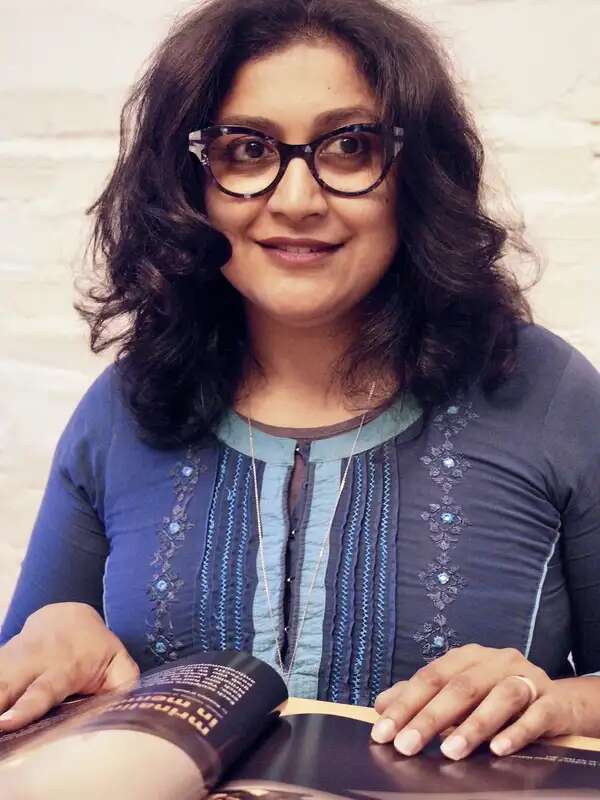
Anooradha Iyer Siddiqi
Department
Architecture Department
Office Hours
Contact
Anooradha Iyer Siddiqi (she/her) is an art and architectural historian specializing in histories of modernity, migration, and settlement in colonial and postcolonial Africa and South Asia. Her work builds on yearslong research in Africa, Asia, and Europe for two scholarly monographs. Architecture of Migration (Duke University Press) analyzes the history, visual rhetoric, and spatial politics of the Dadaab refugee camps in Northeastern Kenya, which offer an object lesson in the paradoxical settlement wrought by emergency environments within empire and the postcolony, and an epistemological vantage point in African and Muslim worlds. Ecologies of the Past is an intellectual history of environmental justice, social and political imagination, and critical heritage practice, based on illustrated writings by Sri Lankan art historian Anil de Silva-Vigier (1909-1996) and designs by architect Minnette de Silva (1918-1998), which consolidated ecological knowledge and structured the writing of new global histories of the built environment that centered Asian landscapes, heritage ecologies, and ecologically-rooted crafts, and staged a field-defining epistemic intervention and pan-Asian and Afro-Asian discourses in architecture, the arts, and culture. Professor Siddiqi’s scholarly and critical articles appear on syllabi in institutions around the world and she serves in steering positions in research centers and institutes at Barnard College, Columbia University, and institutions in the fields of architectural history, Africana studies, South Asian studies, and Women’s, Gender, and Sexuality studies.
Professor Siddiqi is committed to public knowledge, and regularly works with communities on developing narratives of their experiences and histories, particularly through historical understandings of aesthetic form and spatial and material practice. She works closely with the GoDown Arts Centre in Nairobi and several institutions in South Asia to develop archives and historical knowledge of architecture and the arts. She is the curator of the Nairobi exhibition Dadaab Commons, on migration, collective approaches to land, and shared intellectual heritage. She has published two books on art and design: Minnette De Silva: Intersections (Mack Books), on one of the first women in the world to establish an architectural practice, and The L!brary Book (Princeton Architectural Press), on an award-winning New York City arts and design initiative for public school libraries in the five boroughs populated with meaningful children’s literature collections.
Professor Siddiqi holds a Ph.D. in the History of Art and Archaeology, a Master of Architecture degree, and a professional architectural license. She was born in Chennai and her background includes ten years of architectural practice in Bengaluru, Philadelphia, and New York, as well as work for the Women’s Refugee Commission, United Nations Foundation, and Robin Hood Foundation. Please visit www.anooradhaiyersiddiqi.net to learn more and to be in contact.
Ph.D. New York University Institute of Fine Arts
M.Arch. University of Washington
B.A. Georgetown University
Lectures
Modern Architecture in the World
How has architecture been “modern”? This course introduces students to objects, practices, figures, and ideas behind this contentious and contradictory concept, emerging across asymmetries and disparate worlds during the past two centuries.
Life Beyond Emergency: Ecologies and Inhabitations of Migration
This course examines constructed environments and spatial practices in contexts of displacement, within the connected histories of colonialism and humanitarianism. Students interrogate the discourses and spaces of ‘borderlands’ or ‘refugees,’ analyzing emergency environments as constructions that people have resisted, endured, transcended, theorized, and inhabited.
Modern Architecture of South Asia
Taking a broad approach to architectural history, this course examines designed forms, built environments, spatial practices, institutions, figures, discourses, and schools of the South Asian subcontinent and its diasporas in the 19th and 20th centuries.
Seminars
Abolition Architecture (bridge seminar)
This seminar introduces students to histories of abolition through constructed environments and artistic, material, and spatial practices. We study abolition of slavery, prisons, and borders during a period from the eighteenth century to the present, attending to their distinct social movements and discourses and the political, ethical, and aesthetic intersections that emerge.
Colonial Practices (bridge seminar, cross-listed with ICLS)
This course considers colonial practices through architecture, institutions, infrastructure, and territories, examining work by artists and architects and scholarship on architecture, space, and territory through anticolonial, feminist, Indigenous, and Black and Brown consciousness theory. This course is linked to Architecture as a Form of Knowledge, a study module in collaboration with the GoDown Arts Centre in Nairobi.
Partitions, Borders, Camps (bridge seminar, cross-listed with ICLS)
Whereas the iconic forms of partitions, borders, and camps are most often studied through legal, policy, or social science lenses, we will consider them conceptually, aesthetically, and historically as complex practices of architectural formmaking in the long twentieth century. Each is a legal and territorial concept, a symbolic and aesthetic marker of violent land demarcation, a material environment, and an intersection of spatial practices.
Architecture and Environments of South Asia (senior seminar)
This course examines architecture and environments of the South Asian subcontinent, its diasporas, and the transregions connected with it in the nineteenth and twentieth centuries. The course provides an introduction to histories of craft and constructed environments urgent for theorizing South Asia in the world: through materialities of concrete and bamboo; monsoon, forest, and delta ecologies; and contested territories from partitioned land to refugee encampments.
Histories of Architecture and Feminism (senior seminar)
Working in institutional archives (such as Avery Drawings & Archives and Barnard Archives and Special Collections) and in dialogue with scholars building feminist and architectural historiographical intersections, this course engages in a process of archival construction and experiential learning to ask how histories of architecture and feminism are narrated and shaped.